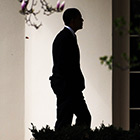
The Obamanauts
What is the defining achievement of Barack Obama?


What is the defining achievement of Barack Obama?
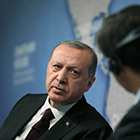
If progressive critics of neoliberalism aim to recuperate the national arena to regain policy space back from global capital, they also need to think hard about how to challenge capitalists they face at home.
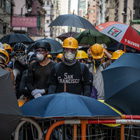
Hong Kong has justified its existence as an interface between Western neoliberal globalism and China’s statist authoritarian capitalism. China no longer needs the city to play that role; Hong Kongers desperately need an alternative.

Trump is in most ways a Rand villain—a businessman who relies on cronyism and manipulation of government. Yet he praises The Fountainhead: “It relates to business, beauty, life and inner emotions. The book relates to . . . everything.”

If two recent analyses of populism agree on one thing, it’s that democracy and capitalism have fallen out of balance. Less clear is how—or whether—the truce between them should be restored.
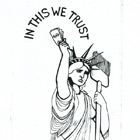
Unrecognized, often unpaid, and yet utterly necessary, reproductive labor is everywhere in our lives. Can it form the basis for a renewed radical politics?

Adam Tooze, Quinn Slobodian, and Atossa Araxia Abrahamian discuss neoliberalism, globalization, and the future of democracy. [Updated with video]

In the future heralded by Silicon Valley, cars will fly and labor will be disposable. But none of this is inevitable. It’s a political choice—that we can still reject.
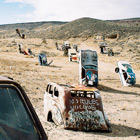
Born on the radical left and then seized by the right, has the concept of “capitalism” outlived its usefulness?
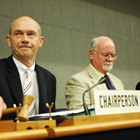
Since its inception, neoliberalism has sought not to demolish the state, but to create an international order strong enough to override democracy in the service of private property.
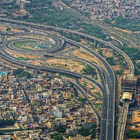
To be human is to shape the world, to create the infrastructure of our common lives. What do we do when that infrastructure becomes a trap?
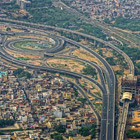
Today’s crises call on humanity to act collectively, but this possibility seems more and more remote. How do we break the cycle? A dialogue.
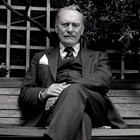
Fifty years ago, British politician Enoch Powell set the template for a racist neoliberal populism that has reached its apotheosis today.
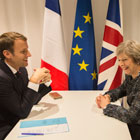
Enacting a series of market reforms in the name of “equality of opportunity,” Emmanuel Macron’s program embodies the contradictions inherent in progressive neoliberalism.

A crucial new work of generational analysis explores how society turned millennials into human capital.